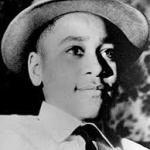This MLK Day, Remember Emmett Till and Voter Suppression

“We can never be satisfied as long as the Negro is the victim of the unspeakable horrors of police brutality…We cannot be satisfied as long as the Negro in Mississippi cannot vote and the Negro in New York believes he has nothing for which to vote.” —Martin Luther King Jr.
Two historic events occurred in American history in different years on August 28. In 1955, Emmett Till was lynched in Mississippi—and in 1963, Martin Luther King Jr. addressed the nation from Washington, D.C., with his “I Have a Dream” speech. While both events have been ingrained in many Americans’ memories, few are aware that they share a common link between brutality and voter suppression.
The prevailing belief of the circumstances surrounding 14-year-old Emmett Till’s killing is that he was accused of whistling at a white woman. Yet, the truth is he was lynched as an act of voter intimidation. After being acquitted by an all-white jury, one of Emmett Till’s killers confessed to the lynching and gave voting as the first reason he killed Emmett.
“But I just decided it was time a few people got put on notice. As long as I live and can do anything about it, [racial slur] are gonna stay in their place. [Racial slur] ain’t gonna vote where I live. If they did, they’d control the government.”—J.W. “Big Milam”
Although Emmett Till was brutally lynched 65 years ago, historical events like his killing continue to suppress the political participation of black Americans. Using data on historical lynchings and present-day voter registration of blacks in southern states, Figure A shows that blacks who live in counties that experienced more lynchings in the past are less likely to register to vote today.
This negative relationship accounts for factors such as education, earnings, and incarceration rates. Considering that nearly 90% of the victims of historical lynchings were black, and lynchings discouraged a variety of behaviors among blacks, the relationship seen in Figure A suggests that past events of terror continue to plague the political participation of blacks. Figure B further confirms that these events do not plague other groups of Americans, since historical lynchings are not related to the political participation of whites.
Despite these past acts of terror, which have historically suppressed black voting, in recent years black Americans have increased their voting rates. It is worth pondering:
- How high would blacks’ political participation be if it weren’t for past acts of brutality and terror?
- How many black politicians would have been elected to fight for better schooling, equal pay, reparations, and racial justice?
- How often would blacks be pivotal in election results—like black women helping elect policymakers who fight for what’s right?
This MLK Day in 2020, let’s find ways to increase our political participation. Let’s also hold our candidates and policymakers accountable by giving us something to vote for. Part of increasing political participation means identifying areas where lynchings have continued to depress black political participation, and supporting politicians that fight for racial justice.
Jhacova Williams is an economist for EPI’s Program on Race, Ethnicity, and the Economy (PREE). In this capacity, she explores the role of structural racism in shaping racial economic disparities in labor markets, housing, criminal justice, higher education, and other areas that have a direct impact on economic outcomes. Williams’ research has focused on Southern culture and the extent to which historical events have impacted the political behavior and economic outcomes of Southern blacks. Prior to joining EPI, Williams served as an assistant professor at Clemson University and worked as a mathematics lab director and instructor at Xavier University of Louisiana.
Join with the Economic Policy Institute to build an economy that works for everyone
We need your help in order to continue our work on behalf of hard-working Americans. Our donors value our high-quality research, reputation for truth-telling, and practical policy solutions. Your tax-deductible gift to EPI makes you an important partner in providing this critical public service.
